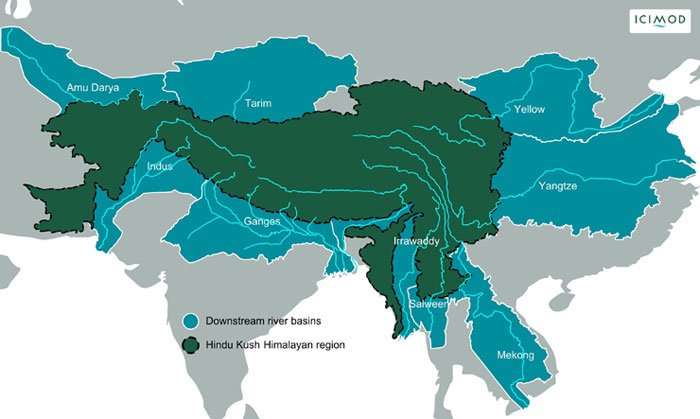The lives of as many as 1.5 billion people could be in jeopardy in the Hindu Kush-Himalayan (HKH) region owing to human-induced climate change, according to an alarming revelation by a new study.
The study claims that catastrophic changes in the region’s water system as a direct consequence of rapidly retreating glaciers is a dire threat that should not be taken lightly. It further states the situation will worsen over time with the glacial retreat gaining more momentum.

The researchers behind the study, Dr. Arun B. Shrestha and Anjali Prakash from the International Center for Integrated Mountain Development, states that at lower elevations, the glacial retreat is not going to be the driving force behind the ongoing changes in the water system for over the next couple of decades or so. Instead, it will be other factors such as ever-increasing human consumption and groundwater reduction that will play the pivotal role.
Meanwhile, at higher elevations, the impact from the glacial retreat could be far more severe with far-reaching damages in the water flow of several rivers.
“The shifts in the location, intensity, and variability of rain and snow due to climate change impacts will likely have a greater impact on regional water supplies and groundwater recharge than glacial retreat,” claims the study, according to The Economic Times.
Worth noting, the Hindu Kush Himalayan region happens to be among the most complex, dynamic, and diverse mountain systems in the world. In comprises an extensive network of glacial systems and rivers that make it more like the unofficial “Third Pole” of the earth. This mountain system is also responsible for providing more than 1.5 billion people and countless of other species with fresh water.
“Increased melting may initially increase the volume of water in rivers, which could mean increased flooding, but as glaciers recede and disappear, the amount of melted snow entering rivers could decrease significantly. Such a situation would result in a substantial decline in the rates of groundwater recharge in some areas,” the study adds. [Via Times of India]
